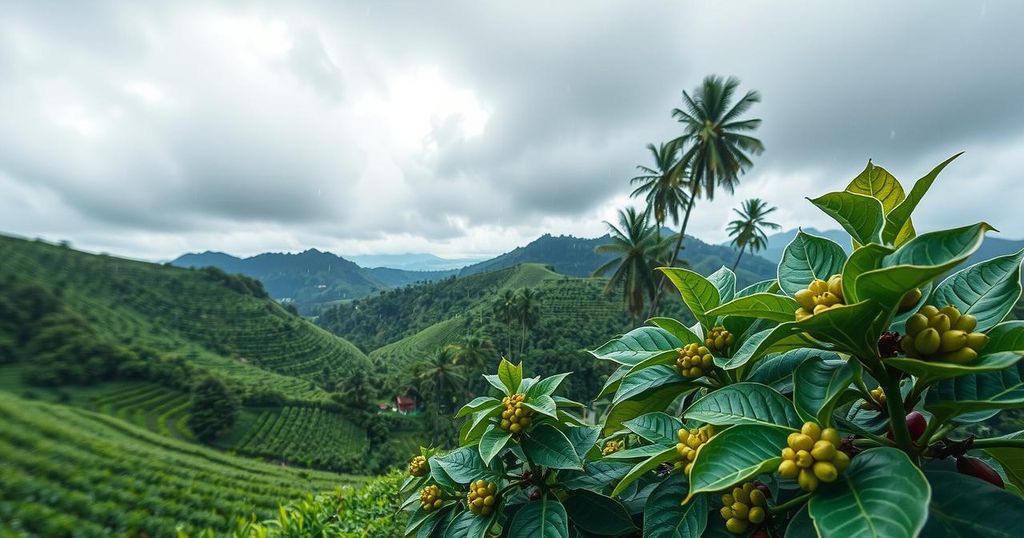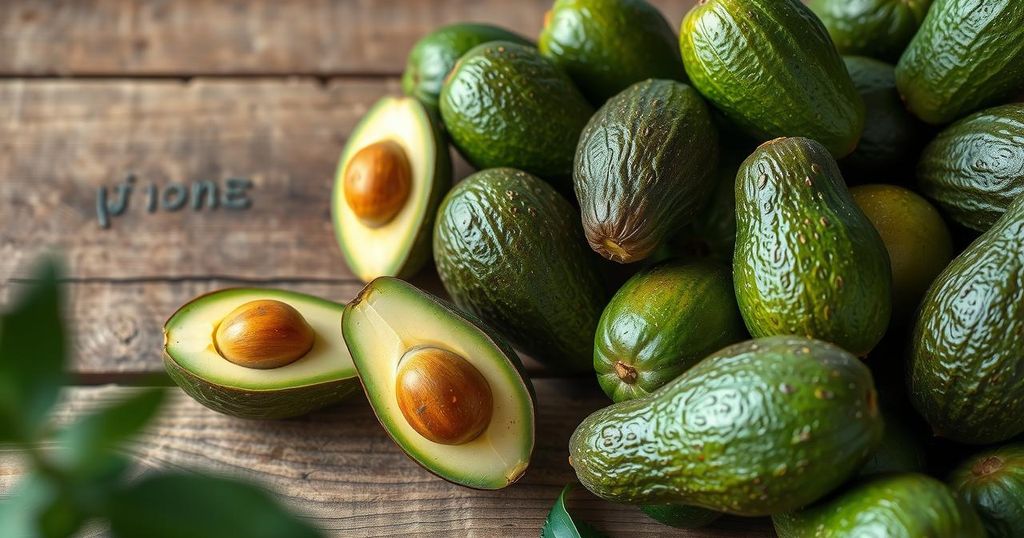Coffee prices are declining due to predicted rains in Brazil’s Minas Gerais region, easing concerns about dryness. Increased ICE coffee inventories and a projected global surplus for the 2025/26 season reinforce this downturn. However, long-term production concerns due to drought conditions, particularly in Brazil and Vietnam, contribute to ongoing market volatility.
Arabica and robusta coffee prices are experiencing downward pressure due to forecasted rains in Brazil. Specifically, May arabica coffee prices have decreased by $0.90 (0.23%), while May ICE robusta coffee prices fell by $0.22 (0.40%). According to Somar Meteorologia, impending widespread showers in Minas Gerais, the largest arabica-producing region in Brazil, are alleviating dryness concerns, contributing to falling prices.
Furthermore, an increase in ICE coffee inventories has heightened supply affordability, which also detracts from coffee prices. Arabica coffee inventories have ascended to a one-week high of 803,032 bags, while robusta coffee inventories reached a one-month high of 4,356 lots. Additionally, Marex Solutions reported a projected global coffee surplus for the 2025/26 season, anticipated to rise to 1.2 million bags, compared to a surplus of merely 200,000 bags in the 2024/25 season.
A recent report from Vietnam’s General Statistics Office revealed that February coffee exports increased by 6.6% year-on-year to 169,000 metric tons, adding bearish sentiment to robusta coffee prices. However, Brazil’s agricultural regions have faced below-average rainfall, which supports some coffee prices.
Despite favorable rainfall predictions, existing supply concerns have been exacerbated by Cecafe’s report indicating a decline in Brazil’s January green coffee exports by 1.6% year-on-year to 3.98 million bags. Furthermore, Conab forecasts predict Brazil’s 2025/26 coffee crop will drop by 4.4% year-on-year to a three-year low of 51.81 million bags.
The prolonged dry weather conditions attributed to El Nino may result in considerable long-term coffee crop damage across South and Central America, adversely affecting Brazil’s coffee production. This drought has significantly impaired coffee growth during crucial flowering stages.
Conversely, robusta coffee prices are supported by reduced production levels. Vietnam has experienced a 20% decrease in coffee production for the 2023/24 crop year. Projections indicate a continued decline, with the USDA forecasting a slight dip in production for the 2024/25 season. However, Brazil’s coffee exports are expected to rise significantly, heightening bearish pressures in the market.
Despite mixed signals from the USDA regarding future coffee production, the outlook remains cautiously optimistic amid anticipated growth in global coffee output and exports. Projections indicate an overall increase in production for 2024/25, though there are significant uncertainties surrounding crop estimates.
The coffee market reflects contrasting influences from weather forecasts and inventory levels. While anticipated rains in Brazil alleviate immediate dryness concerns, existing supply issues, rising inventories, and production forecasts signal bearish trends for coffee prices. The ongoing impact of climate factors, such as severe drought conditions, further complicates the outlook for coffee production in South and Central America, suggesting potential volatility in the market going forward.
Original Source: www.tradingview.com




